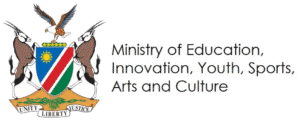Namibian pre-service science teachers’ scientific epistemic beliefs
Keywords:
scientific epistemic beliefs, measurement invariance, pre-service science teachersAbstract
This study aimed to validate the adapted scientific epistemic beliefs (SEB) questionnaire and assess the development of scientific epistemic beliefs of pre-service science teachers enrolled in the primary science education programme at two campuses of a university in Namibia using paper and pencil method. The study employed quantitative methods to collect data. Data was obtained from a sample of 457 (40% male; 60% female) pre-service science teachers. The study adapted the scientific epistemic beliefs questionnaire developed by Conley, Pintrich, Vekiri and Harrison (2004). The adaptation entailed shortening the questionnaire to mitigate redundancy suspected in the original questionnaire. The self-reporting Likert scale questionnaire comprised four dimensions of beliefs: source; certainty; development; and justification of scientific knowledge. The adapted questionnaire had reasonable reliability with the Cronbach’s alpha of subscales ranging from = .51 to .73 and the overall reliability of = .74. Model fit analysis yielded good statistical fit for the data. The results showed that the questionnaire worked reasonably well with the Namibian sample used given the good model fit for the data, reliability and strong measurement invariance. The study found no statistically significant differences in beliefs in terms of gender. However, there were statistically significant differences in beliefs about source and justification of scientific knowledge in terms of year of study. Understanding the nature of scientific knowledge has been shown to be beneficial in learning science. Understanding what scientific knowledge and practices entail is critical to developing pre-service science teachers’ epistemic insight. For this reason, pre-service science teachers should be exposed to the epistemic aspect of scientific literacy during their training.
Downloads
Published
How to Cite
Issue
Section
License
Copyright (c) 2022 MoEAC, National Institute for Educational Development (NIED)

This work is licensed under a Creative Commons Attribution 4.0 International License.






